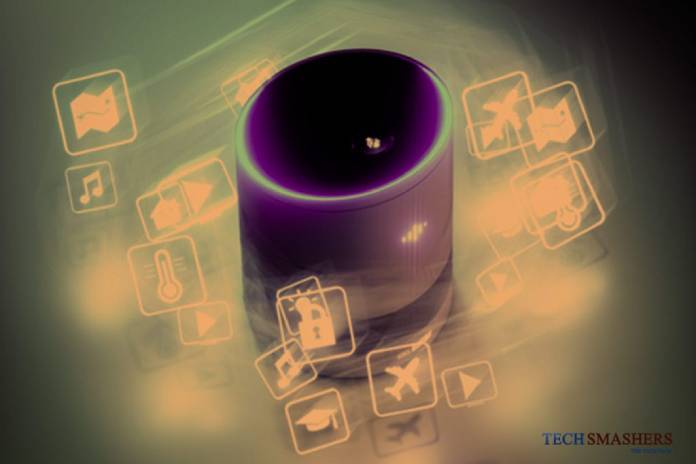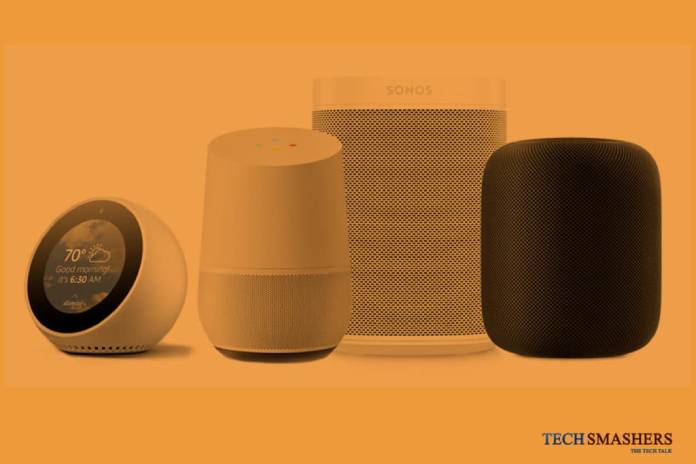Alexa, Siri, Bixby, Google Assistant… All these names of voice assistants are increasingly present in our day-to-day. And is that voice search or voice marketing is one of the great technological revolutions that are seen on the horizon.
In countries like the United States, for example, online audio is already a key piece of strategy for marketing departments. Since October 2011, Apple announced that it would include in its iPhone 4S an artificial intelligence system that would have voice assistant functions called Siri has opened a world full of possibilities in which the voice acquires the main role. Are you ready for the era of voice marketing?
The Rise Of Smart Speakers
Smart speakers are currently the fastest-growing consumer technology, and a good example of this is that the best-selling gift from last Christmas at Amazon was precisely the Echo Dot, a hands-free voice-controlled device that incorporates the virtual assistant Alexa.
Google, of course, was the first company to launch Google Home, its intelligent voice device, but in addition, Ikea has already partnered with a speaker manufacturer to launch its own smart speaker, which has the appearance of a lamp.
The rise of these smart devices not only raises, therefore, the possibility that we are facing a new paradigm shift. In addition, it represents a new challenge for a large number of companies and brands, which will need to be ‘found’ by these devices when consumers request any type of service, another challenge within the digitization process in which many companies are located.
Also Read: Wearable Sales Will Continue To Grow Double-Digit This Year
From SEO to VOS
How Does Voice Search Transform Searches?
According to an international company that measures the digital audiences of newspapers and also analyzes user behaviour beyond the media, 50% of the searches we perform in 2020 will be by voice. That is, in a few years we could be saying goodbye to SEO (Search Engine Optimization) searches to embrace VOS (Voice Optimization Search) through the so-called ‘smart speakers’ or smart speakers.

In the same sense, Google has expressed itself, which has already advanced that by 2020 half of the searches will be by voice. The SEO (Search Engine Optimization), therefore, will become VOS (Voice Optimization Search), and the search engine will only offer a result when doing a voice search. It is inevitable that in the next 5 years we will see the passage of SEARCH ENGINE to an ANSWER ENGINE, and it will be essential to think about how it is spoken, and not how it is written.
The Importance Of Audio Branding
Given this foreseeable change of paradigm, companies must, in addition to defining their corporate identity through the image, redefine their personality through an auditory identity. In this way, customers will be able to distinguish a brand not only through the image but also through the sound. Numerous studies highlight the importance of audio branding in brand identity and the importance that sound can have when identifying a specific brand.
In that sense, one of the best examples of this practice is Coca-Cola, which has a sound identity consisting of 5 sounds that it introduces in all its advertisements, and in this way, in addition to harnessing the evocative power of the sounds, it reinforces brand recognition.
Listen to the message: welcome to the Age of voice marketing
It does not seem that voice marketing is going to disappear, but rather the opposite, but it is also evident that there are still some problems of use and privacy that must be overcome before a widespread use among the public.
Some of the doubts that arise before these technologies are, for example, if the machines are going to be finally able to understand all the tones we use (irony, insinuations or assumptions), or pitfalls such as privacy the users before a device that emerges like a Big Brother who listens to everything.
But the evolution of conversational technology is a fascinating mystery. We are not yet able to anticipate how far these new devices will take us, which, at the moment, do not have a wide margin of development. Are we facing a fashion or, conversely, is it a paradigm shift? Will we be in a couple of decades in what Google has come to call the Age of Environmental Computing? Is voice search the main challenge for companies with an online presence?



